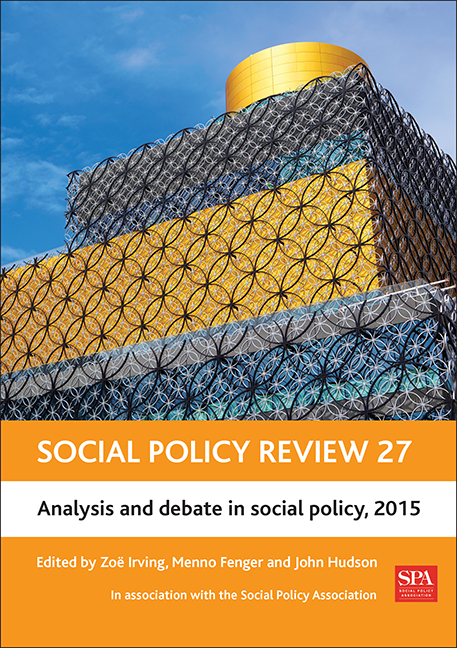Book contents
two - Social security policy and low wages in austere times
Published online by Cambridge University Press: 08 March 2022
Summary
Introduction
This chapter considers state responses to low wages. It develops from the view that low wages are economically problematic for both individuals and the state, as they create dilemmas related to social reproduction, and financial incentives to take waged work. As the solutions to these dilemmas have been expressed differently at various moments in England and later in the UK, the chapter places policies aimed at addressing low wages in their historical context. It traces concerns with wage supplementation under the Elizabethan Poor Law to the now infamous Poor Law Commission report of 1834, and the consequential prohibition of such forms of poor relief in the Poor Law Amendment Act 1834. The chapter demonstrates how those concerns with wage supplements cast a long shadow over social security policy-making until the 1970s, since when, the arguments of the 1834 Poor Law Commission have been reversed. No longer are wage supplements defined as being economically and socially problematic. In contrast, they are now seen as being beneficial to individuals and wider society, encouraging people into (albeit low) paid work, and helping to flexibilise late modern capital accumulation in Britain.
It is within this context that the chapter considers the coalition government's new form of social assistance – Universal Credit (UC) – that arguably brings to its logical conclusion trends begun in the 1970s. While UC might be seen as representing a break with post-1834 poor relief and post-Second World War social assistance, as it removes distinctions between the employed and unemployed, this chapter argues that the lasting influence of the 1834 Poor Law Commission's concerns can be seen in UC's extension of conditionality to people in waged work to ensure that they earn as much money as possible.
Finally, the chapter considers the potential alternative to wage supplements – a living wage – an idea that is currently enjoying a revival in Britain. It is argued that living wages have a great deal of potential. However, that potential is limited by an economic orthodoxy that frames hegemonic approaches to living wages and which means that, in a time of public spending austerity, they have arguably become little more than a means of reducing the cost to the state of wage supplements.
- Type
- Chapter
- Information
- Social Policy Review 27 , pp. 33 - 54Publisher: Bristol University PressPrint publication year: 2015

